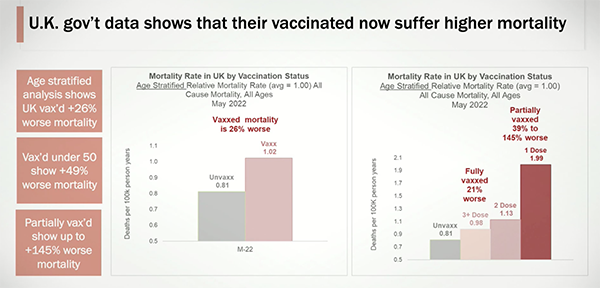REVISIONIST HISTORY: FDA now claims its crusade against ivermectin was just a “recommendation” against taking it
11/23/2022 / By Ethan Huff

The U.S. Food and Drug Administration (FDA) is trying to rewrite history by claiming that it never actually told Americans not to take ivermectin for the Wuhan coronavirus (Covid-19).
The FDA insists it only made a “recommendation” that people not take the generic antiparasitic drug, which was first approved by the FDA for human use back in 1996. (Related: Ivermectin is also considered by the World Health Organization [WHO] to be an “essential medicine”.)
At a November 1 hearing, lawyers representing the FDA tried to pretend as though the FDA never restricted ivermectin while making it next to impossible to get. No, instead, the FDA just said “stop” if you want to, according to the federal agency’s legal team.
“The cited statements were not directives,” claims Isaac Belfer, one of the FDA’s attorneys. “They were not mandatory. They were recommendations. They said what parties should do.”
“They said, for example, why you should not take ivermectin to treat COVID-19. They did not say you may not do it, you must not do it. They did not say it’s prohibited or it’s unlawful. They also did not say that doctors may not prescribe ivermectin.”
“They use informal language, that is true. It’s conversational but not mandatory.”
Doctors want the FDA held accountable for interfering with ivermectin prescriptions
Tell all that to the doctors across this country who were threatened with having their medical licenses revoked for prescribing ivermectin, or the patients who had trouble receiving ivermectin shipments in the mail because the FDA was conspiring to intercept shipments.
The meat of the case has to do with three doctors who are suing the FDA for interfering with their ability to prescribe ivermectin and other medicines to patients. For many, ivermectin has been a lifesaver, and these doctors were merely prescribing what they thought best for their patients.
In 2021, the FDA created an entire webpage called “Why You Should Not Use Ivermectin to Treat or Prevent COVID-19” that many local and state health boards used to persecute physicians who dared to prescribe it anyway. This is at the heart of the lawsuit.
The FDA also infamously tweeted a statement of mockery at ivermectin users, telling them that “You are not a horse. You are not a cow. Seriously, y’all. Stop it.”
This was meant to be funny, the implication being that ivermectin is just “horse paste.” While the drug is available at local feed stores for use in animals, it is also FDA-approved for humans – and has been for nearly 30 years.
The FDA failed to mention this in the tweet, instead falsely leading the public to believe that ivermectin is strictly for animals. The truth is that ivermectin is widely used across the world in humans to treat parasites – and it works well, studies show.
“Hold your horses, y’all. Ivermectin may be trending, but it still isn’t authorized or approved to treat COVID-19,” reads a second post the FDA tweeted last year because the agency just could not help itself.
On an FDA question and answer page, the question is also asked: “Should I take ivermectin to prevent or treat COVID-19?” The answer, of course, is “No.”
The lawsuit accuses the FDA of interfering with doctors’ practice of medicine, including multiple violations of the Federal Food, Drug, and Cosmetic Act.
“The Indian state of Uttar Pradesh (pop. 200 million) used ivermectin to eradicate the covid illness,” pointed out a commenter about how ivermectin does, in fact, work.
“My friend died because no doctor would give him ivermectin until it was too late,” claimed another.
More of the latest news about the corrupt FDA can be found at FDA.news.
Sources for this article include:
Submit a correction >>
Tagged Under:
big government, Censored Science, COVID, FDA, ivermectin, lawsuit, Medical Tyranny, recommendation
This article may contain statements that reflect the opinion of the author
RECENT NEWS & ARTICLES
VaccineWars.com is a fact-based public education website published by Vaccine Wars Features, LLC.
All content copyright © 2018 by Vaccine Wars Features, LLC.
Contact Us with Tips or Corrections
All trademarks, registered trademarks and servicemarks mentioned on this site are the property of their respective owners.




















